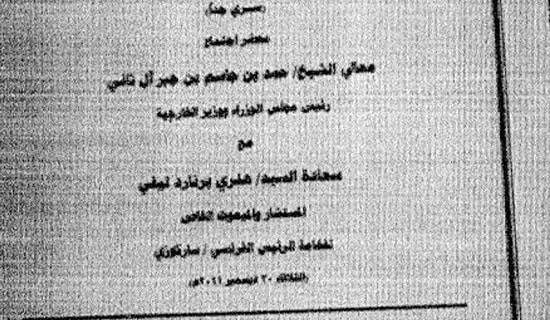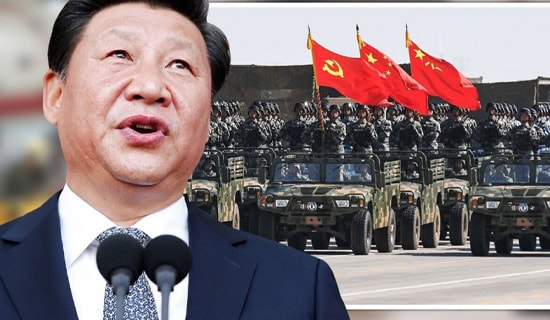Until recently, the Egyptian media was on the warpath against Hamas, as expressed by its depiction of the movement as a terror organization affiliated with the Muslim Brotherhood (MB) that harms Palestinian interests and also harms Egypt and its security and economic interests.[1] Hamas was presented as responsible for the deaths of hundreds of Palestinians in Gaza, and as trading in their blood; its attack on Israel was described as actually directed against Egypt, with the aim of ensuring the continuation of Hamas' rule in the Gaza Strip by forcing Egypt to open the Rafah crossing.[2]
However, since Hamas expressed its willingness to come to Cairo to discuss the Egyptian ceasefire initiative, after opposing doing so for some time and preferring Qatari-Turkish mediation, the attack on Hamas in the Egyptian regime-affiliated media has died down, to be replaced with harsher language against Israel and its leaders. It should be noted that this change of tone is in conflict with Israel's and Egypt's shared interest in their war with Hamas, and is apparently an attempt to prepare Egyptian public opinion for Egypt-Hamas negotiations, and for the possibility of a more flexible Egyptian stance towards some Hamas demands.
Signs of this gentler tone can be seen in several articles that, instead of focusing on Hamas' connections with the MB and treating Hamas as an enemy of Egypt, refer to it as a legitimate resistance movement against the occupation, in whose existence Egypt has an interest and with whom Egypt wishes to maintain ties – even though Egyptian sources clarified that it is too early to talk of renewing actual Egypt-Hamas relations.[3] Some of the articles call for accepting Hamas' demands and imposing an economic boycott against Israel on the unofficial popular level, and present Israel as Egypt's No. 1 enemy and as an alien corn sown by European imperialism in the heart of Palestine, while also making antisemitic comments against Jews at large. [4] Israeli Prime Minister Benjamin Netanyahu is depicted as "the enemy of Allah," as a war criminal who must stand trial, and as a figure attempting to carry out ethnic and racial cleansing, on a par with Hitler and Islamic State (IS, formerly ISIS) leader Abu Bakr Al-Baghdadi.[5]
It should be noted that criticism against Hamas, especially against its leader Khaled Mash'al, is still being expressed in the Egyptian media,[6] sparked by Mash'al's statement in the beginning of the conflict that the Egyptian military should show heroism for the sake of the Arab nation.[7]The main criticism is that Hamas dragged its feet before accepting the Egyptian ceasefire initiative, and over the executions it has carried in Gaza, such as the execution of former Hamas spokesman Ayman Taha, who was convicted of spying for Egypt.[8]
The following are translated excerpts from articles demonstrating a softened tone towards Hamas coupled with a harsher tone towards Israel:
Egyptian Columnist: Hamas' Victory In Gaza Does Not Spell A Return Of The MB
'Amr Hashem Rabie, writing in the pro-regime daily Al-Masri Al-Yawm, said: "The claims of many in Egypt that a Hamas victory in the war for Gaza constitutes a return of the MB and the triumph of their ideology – which is impotent, reactionary, and perhaps even backward – do not distinguish between Hamas as a movement resisting a foreign occupier and as an MB movement. Furthermore, [those making these] claims consider what happens in Gaza to be an internal Palestinian matter – and even the Mubarak regime did not operate under this shameful view; until he was removed from power, Mubarak considered Gaza a natural regional extension of Egypt.
"Egypt persisted with [its] initiative even though the facts on the ground changed following [Israel's] ground incursion: There were dozens of Israeli dead; resistance rockets landed in Dimona and Tel Aviv; the resistance used drones and captured at least one soldier. None of this prompted Egypt to modify its initiative. Obviously, no one expects Egypt to enter the war on the side of the resistance or Hamas; but it is also clear that the course of action taken by [Egypt] was not the expected one vis-à-vis those who guard Egypt's eastern gate [i.e. the Gazans].
"Why is Egypt leaving itself open to extortion by Turkey or by the Gulf States? Where is the official [Egyptian] position on Israel's responsibility for starting the war? And what is its position regarding Israel's violation of the [Shalit] prisoner deal by arresting several [of those released under it]? And [shouldn’t Egypt be concerned] with the lifting of the land siege of the Rafah crossing, or at the very least allowing the passage of the sick, elderly, and students, except for resistance elements? Despite the permission that Egypt gave for Egyptian and Arab aid to enter [Gaza] from its territory, it could have accepted hundreds of injured, as well as Arab aid to treat them in Egypt. Where is its support for the Palestinian reconciliation as preparation to stabilize Gaza?"[9]
We Must Support The Demands Of The Resistance In Its Negotiations With Israel
Columnist Noha Al-Sharnoubi wrote in the official daily Al-Ahram: "Egyptian and Arab media personalities speak and write as though they were Israelis: They oppose the Palestinian resistance with all their might; they justify Israel's slaughter of their Muslim brothers in Gaza... they claim that the events in Gaza are none of Egypt's business...
"But in truth, the Gaza Strip is the eastern gate of Egyptian national security, and there is no choice but to protect the Palestinian resistance there against the common Israeli enemy and support the legitimate demands of the resistance, chiefly: Israeli troops withdrawing from the strip, releasing [the prisoners] that Israel arrested after the murder of the three settlers, ending the economic siege of the strip, opening the Gaza sea port under UN sponsorship, opening the Rafah Crossing and keeping it open under international oversight, closing Palestinian airspace to Israeli planes, allowing strip residents to visit Jerusalem and pray at the Al-Aqsa Mosque, opening a commercial zone in the strip, Israel non-interference in internal Palestinian affairs, and [Israel] ending its opposition to the unity government between the West Bank and the strip."[10]
Columnist: The Jihad Of The Resistance Fighters In Gaza Is Legitimate
SUPPORT OUR WORK

In his column for the Al-Ahram daily, Gamal 'Abd Al-Nasser wrote: "The asymmetrical war currently taking place in Arab Muslim Gaza has historical roots. The servants of imperialism and the mercenary agents of the Zionists are attempting [to distort] its character and portray the valiant resistance members, those fighting to defend their dignity, their land and their holy places, as misguided, while it is indisputable that these valiant fighters are waging legitimate jihad.
The history of the Jews, particularly [of their relations] with the Arabs, shows how corrupt they are and how they corrupt the land. They allow treating the Arabs in a manner prohibited by their [own] religion. [For example,] adultery is permitted with Arabs, but prohibited with Jews; usury is permitted with Arabs and prohibited with Jews, etc... Today the Jews are the owners of the largest interest-charging global banks, they own the fashion houses, they trade in sex and even spread this type of trade, and they sell and disseminate drugs, primarily in the Arab and Muslim countries.
We view what is now happening in Gaza as boastfulness and criminal, the flouting of international conventions and complete disregard of human rights. Israel, that despicable alien corn sown by European imperialism in the heart of the Arab and Muslim countries (Palestine), is now bragging, desecrating the holy places and casting the blame on those who defend their soil, dignity and homeland… And now we see Allah's enemy, Netanyahu, looking sorrowful and crestfallen due to the actions of the jihad fighting group that is defending its soil and homeland despite the siege and the modest equipment [it possesses]." [11]
Renewing Relations With "The New Hamas" Is In Egypt's Interest
Another example is an article by Sama'a Sulaiman in the government daily Al-Ahram, who wrote: "The primary enemy threatening Israel is the Palestinian resistance and especially Hamas... Unfortunately, some Egyptians do not distinguish between the leaders of Hamas – who should be replaced – and the innocent Palestinians being killed and wounded. It is true that the resistance made mistakes... It exceeded its mandate – namely, resisting the occupier until he leaves – and aspired to fulfil a political role, which exposed the ambitions and weaknesses of some of the movement's leaders, who saw politics as a source of livelihood, whether by receiving financial aid from Arab and foreign countries, or via commercial tunnels, which are their chief bone of contention with the Egyptian leadership. Hamas used [these tunnels] against the Egyptian regime by smuggling terrorists and weapons to the Sinai in response to the failure of their plan for an alternate homeland [in Egypt after the ouster of president Mursi].
"In fact, despite the severity of these mistakes, [even] Hamas [itself] is not [just] Isma'il Haniya or Khaled Mash'al. Even if some resistance [members] carried out their orders and harmed Egypt, and even began working against Egyptian national security at some point, it does not mean we should demand the elimination of the Palestinian resistance. We should [only] urge Hamas to replace its current leaders, who harmed both Hamas and the Palestinian cause. Renewing relations with Hamas is in Egypt's interest. There is also an urgent need to holding ties with other resistance factions, which are more nationalistic and more loyal to the [Palestinian] cause, since Israel was and remains Egypt's primary enemy. Therefore, the existence of resistance that the Egyptian regime can coordinate with and [thereby] preserve the Egyptian role in the Palestinian cause so as to restore our Palestinian brothers' rights, is a necessity... [Harming] the resistance is a red line, even if it made mistakes in some manner or other. The primary enemy is Israel, and the Palestinian cause should remain the region's most pressing cause."[12]
*L. Lavi is a research fellow at MEMRI.
Endnotes:
[1] See Part I of this series, MEMRI Inquiry & Analysis Series Report No.1106, Egypt's Position On Gaza Conflict Reflects Conflict Between Its Hatred For Hamas And Its Solidarity With The Palestinians, July 24, 2014.
[2] See MEMRI Special Dispatch - No. 5812, Egypt's Position On Gaza Conflict Reflects Conflict Between Its Hatred For Hamas And Its Solidarity With The Palestinians, July 31, 2014.
[3] Al-Sharq Al-Awsat (London), August 7, 2014.
[4] Al-Ahram (Egypt), August 5, 2014.
[5] Al-Masri Al-Yawm, (Egypt), August 3, 2014, August 5, 2014; Al-Ahram (Egypt), August 6, 2014.
[6] Amad.ps, August 8, 2014.
[7] Al-Masri Al-Yawm (Egypt), July 9, 2014.
[8] Al-Masri Al-Yawm (Egypt), August 10, 2014; Al-Ahram (Egypt), August 11, 2014.
[9] Al-Masri Al-Yawm (Egypt), August 4, 2014.
[10] Al-Ahram (Egypt), August 5, 2014.
[11] Al-Ahram (Egypt), August 6, 2014.
[12] Al-Ahram (Egypt), August 7, 2014.




